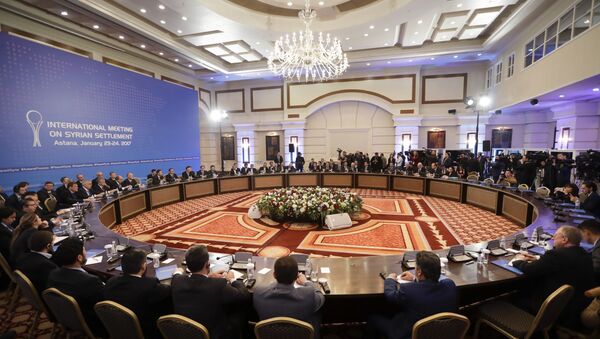GENEVA (Sputnik) — The first round of Astana talks on Syrian crisis settlement brought together the representatives of the Syrian government and the armed opposition groups for the first time in the six years of the Syrian war. As a result of the talks, Russia, Iran and Turkey agreed to establish a trilateral mechanism to monitor the ceasefire that came into effect on December 30, 2016.
"The ceasefire did not happen. We were promised the paper of mechanisms of ceasefire will be discussed in Ankara. But this also did not happen…. We also received promises to release women detainees. This also did not happen," Alloush, who is also part of the High Negotiations Committee negotiating team in Geneva and who was a leader of military opposition delegation in Astana, said.
"We also wanted a mechanism in place to have prisoners released. And this also never happened. So promises are never fulfilled, and this affects to credibility to Russians," he added.
"I hope they [Russians] could do something about their promises and to really seek to find a political solution and to put away Iran and put limit to its role," Alloush said.
He added that Iran's participation in the settlement process negatively affected it.
"Unless Russians fulfill their promises, there is no need in receiving new promises," Alloush said, asked whether he would come to a new round of Astana talks.

